When it comes to vitamin C, most people immediately think of oranges - a popular fruit with a sweet and sour taste that is easy to eat and is considered the "boss" in the group of foods that boost resistance.
However, in reality, oranges are only at a fairly average level with 53 mg of vitamin C/100g. Surprisingly, there are many other familiar fruits in Vietnam that have a much higher vitamin C content than oranges, but are also very easy to find and add to the daily diet.
The importance of vitamin C for health
Vitamin C is an essential micronutrient that plays an important role in many processes in the body. It helps boost immunity, protects cells from free radical damage, aids in iron absorption, participates in collagen production and wound healing.
Because the human body cannot synthesize vitamin C, daily supplementation through food is extremely necessary.
According to the National Institute of Nutrition, the daily requirement of vitamin C for adults is 65-90mg. For people who are often under pressure, stressed, smoke or exposed to polluted environments, the need may be higher.
6 fruits rich in vitamin C that make oranges "inferior"
Below are fruits with higher vitamin C content than oranges, calculated per 100g serving.
1. Acerola (Barbados cherry) - "king" of vitamin C
Topping the list is the acerola fruit, also known as Barbados cherry - a small fruit but has a vitamin C content of up to 1,677 mg/100g, 30 times higher than oranges.
Benefits: Anti-aging, liver protection, increased resistance, improved skin and helped slow down the aging process.
How to use: Can be eaten fresh, juiced or used as a supplement extract.
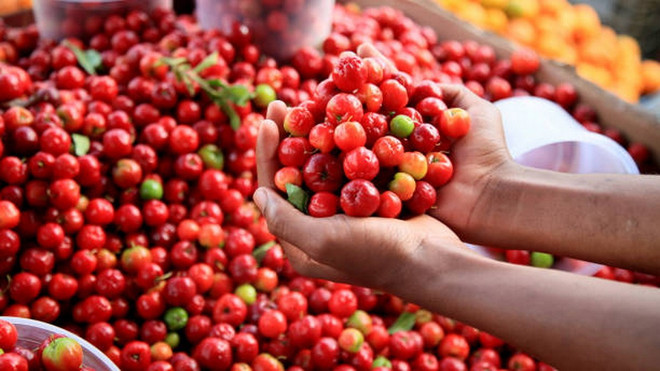
2. Guava - "queen" of vitamin C
If Barbados cherry is the king of vitamin C, then guava is the queen. This is a rustic and familiar fruit, especially popular in the fall and winter. With 228 mg of vitamin C/100g, guava contains more than 4 times more vitamin C than oranges.
Benefits: Helps fight inflammation, boosts immunity, is good for digestion and helps control blood sugar.
How to use: Eat fresh, squeeze juice, or make salad mixed with salt and chili - both delicious and nutritious.
3. Red bell pepper - "warrior" against flu
Third on the list is red bell pepper, with 183 mg of vitamin C per 100g. Not only rich in nutrients, this fruit also helps to enhance the attractiveness of dishes thanks to its eye-catching color.
Benefits: Increases resistance, protects the heart, is an antioxidant and is good for the eyes.
How to use: Eat raw with salad, juice with carrots or stir-fry quickly to retain crispness and nutrients.
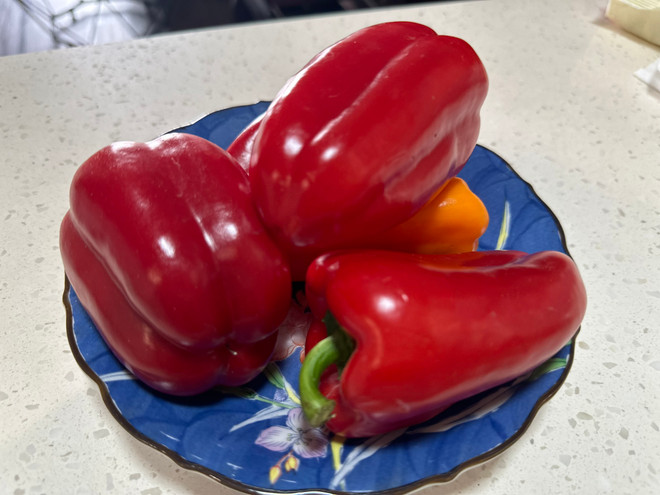
4. Kiwi - small but mighty
Dubbed the “fruit of health,” kiwi contains 93 mg of vitamin C/100g, about 1.7 times more than oranges.
Benefits: Helps boost immunity, improve digestion, beautify skin and good for the heart.
How to use: Eat directly, make smoothies, salads or mix with oats for a nutritious breakfast.
5. Passion fruit - summer fruit
With 72 mg of vitamin C/100g, passion fruit is an ideal choice for hot summer days.
Benefits: Rich in antioxidants, aids digestion, good for sleep and calms the nerves.
How to use: Eat fresh, mix with cold drinks, combine with honey or use as a topping for yogurt.
6. Lychee - surprisingly rich in vitamin C
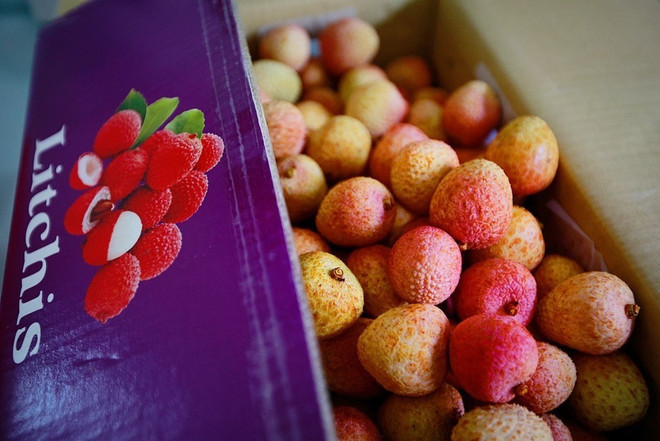
Few people expect that lychee has a remarkable amount of vitamin C - 71 mg/100g, equivalent to passion fruit.
Benefits: Increases resistance, enriches blood, beautifies skin and supports the cardiovascular system.
How to use: Eat fresh, make smoothies, lychee tea or mix with fruit salad.
How to add vitamin C to your daily menu
You can effectively supplement vitamin C from the above fruits in simple ways.
Smoothies, juices: Combine kiwi, guava, cherry or bell pepper with apple, carrot to create a nutritious refreshing drink.
Fruit salad : Mix lychee, kiwi, passion fruit, guava with a little honey and lemon, create a sweet and cool dessert.
Eat fresh : It is the best way to preserve the vitamin C and antioxidant content.
Side dishes : Quick stir-fry bell peppers or toss salad with olive oil; kiwi combined with oatmeal for an energetic breakfast.
Note when supplementing vitamin C from fruit
Do not overuse because eating too much fruit rich in vitamin C can cause diarrhea, bloating or affect people with stomach problems.
Fresh is best. Vitamin C is easily destroyed by heat and light, so eat fresh fruit rather than thoroughly cooking it.
Mix and match. Don't just focus on one type of fruit, mix and match to increase effectiveness and add variety to your meal./.
Source: https://www.vietnamplus.vn/6-loai-trai-cay-rat-ngon-va-giau-vitamin-c-hon-han-cam-ma-it-ai-biet-post1034866.vnp






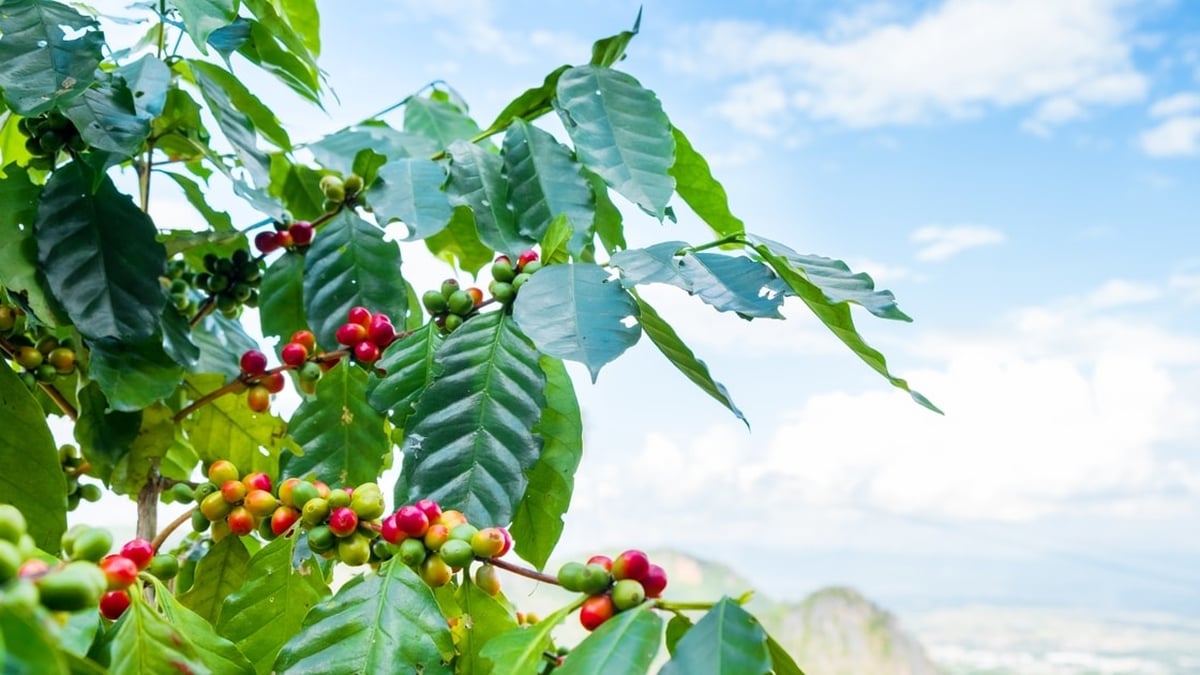



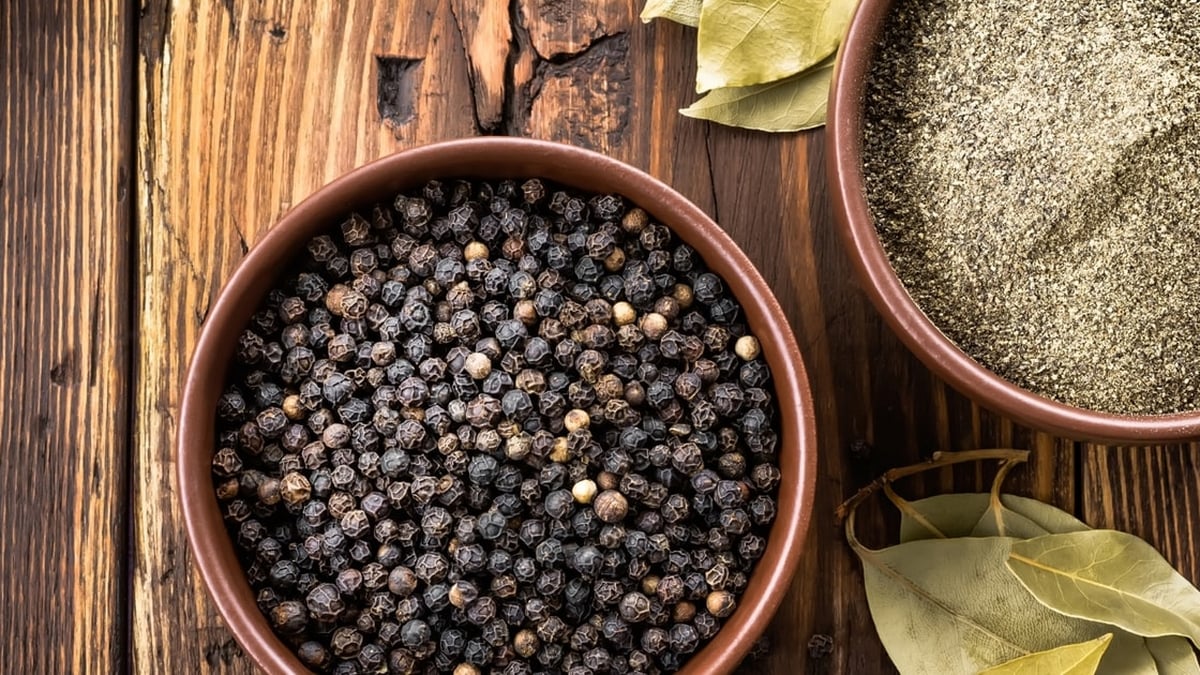








































![[Maritime News] More than 80% of global container shipping capacity is in the hands of MSC and major shipping alliances](https://vphoto.vietnam.vn/thumb/402x226/vietnam/resource/IMAGE/2025/7/16/6b4d586c984b4cbf8c5680352b9eaeb0)













































Comment (0)